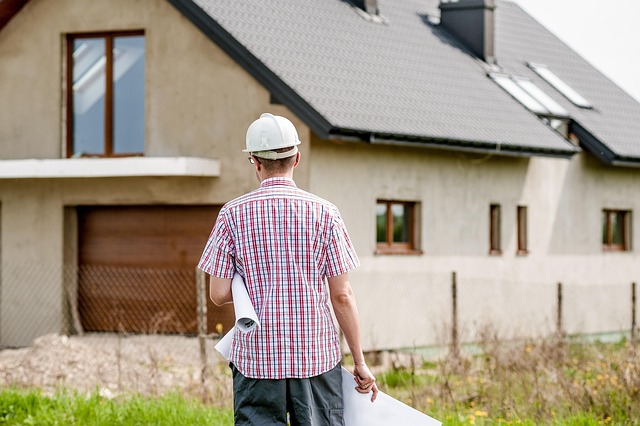Before starting any home renovation, define clear goals, prioritize repairs (cosmetic or structural), research average regional costs, and set a realistic budget. Planning involves assessing project scope, researching material & labor expenses, factoring in DIY vs professional services, and setting aside contingency funds for unexpected issues. This meticulous planning ensures informed decisions, efficient allocation of resources, and successful completion without compromising quality or financial stability.
Planning and managing home renovation projects can be overwhelming, but with clear strategy, you can achieve your dream space without breaking the bank. This guide provides an in-depth look at every step of successful home repair and maintenance, from setting realistic goals and budgets to effective project management techniques. We’ll explore how to define your project scope, estimate costs, create timelines, break down tasks, and communicate with contractors. Plus, learn about long-term planning for sustained home value through regular maintenance and understanding future trends in home renovations.
- Setting Clear Goals and Budget for Home Repair and Maintenance
- – Defining project scope and priorities
- – Estimating costs: materials, labor, and unexpected expenses
Setting Clear Goals and Budget for Home Repair and Maintenance

When planning home renovation, setting clear goals is paramount. Define what needs fixing, whether it’s a minor cosmetic upgrade or a major structural change, and prioritize repairs based on necessity and impact. A well-defined goal provides a roadmap for your project, guiding decisions from material selection to hiring professionals.
Just as crucial is establishing a realistic budget for home repair and maintenance. Researching average costs for your region and specific tasks helps prevent overspending. Allocate funds thoughtfully, considering both immediate needs and long-term upkeep. A well-managed budget ensures financial stability throughout the renovation process, allowing you to complete projects efficiently without compromising quality.
– Defining project scope and priorities

Planning is key when undertaking any home renovation project, ensuring a smooth transition from idea to reality. The first step in this process involves defining the project scope and setting priorities. This means clearly outlining what needs to be done, whether it’s a minor home repair or a full-scale renovation. For instance, a homeowner might decide on repairing the roof as a priority due to its critical role in protecting the house from weather damage.
Understanding the extent of work required is essential for effective management. It helps create a realistic timeline and budget while allowing homeowners to make informed decisions about the project’s direction. Prioritizing tasks ensures that resources are allocated efficiently, making the home renovation process more manageable and cost-effective. After all, effective planning in home repair and maintenance sets the stage for successful transformations.
– Estimating costs: materials, labor, and unexpected expenses

Planning a home renovation involves careful budgeting, especially when it comes to estimating costs. Home repair and maintenance can quickly escalate if you’re not prepared. Start by assessing the scope of your project and researching material costs. Create a detailed list of required materials, including any specialized items, and get quotes from multiple suppliers. This will give you a solid foundation for understanding typical pricing in your area.
Don’t forget to factor in labor costs. Will you hire professionals or take on the work yourself? Even if you plan to DIY, consider the value of your time and the potential cost savings (or losses) from attempting unfamiliar tasks. Unexpected expenses are also a common pitfall, so always have a contingency fund in place for any unforeseen issues that may arise during the renovation process.
Planning and managing home renovation projects requires clear goals, a detailed budget, and meticulous cost estimation. By defining your project scope and priorities, along with accounting for potential unexpected expenses, you set yourself up for successful home repair and maintenance. These foundational steps ensure that your renovation stays on track, within budget, and aligns with your desired outcome.
